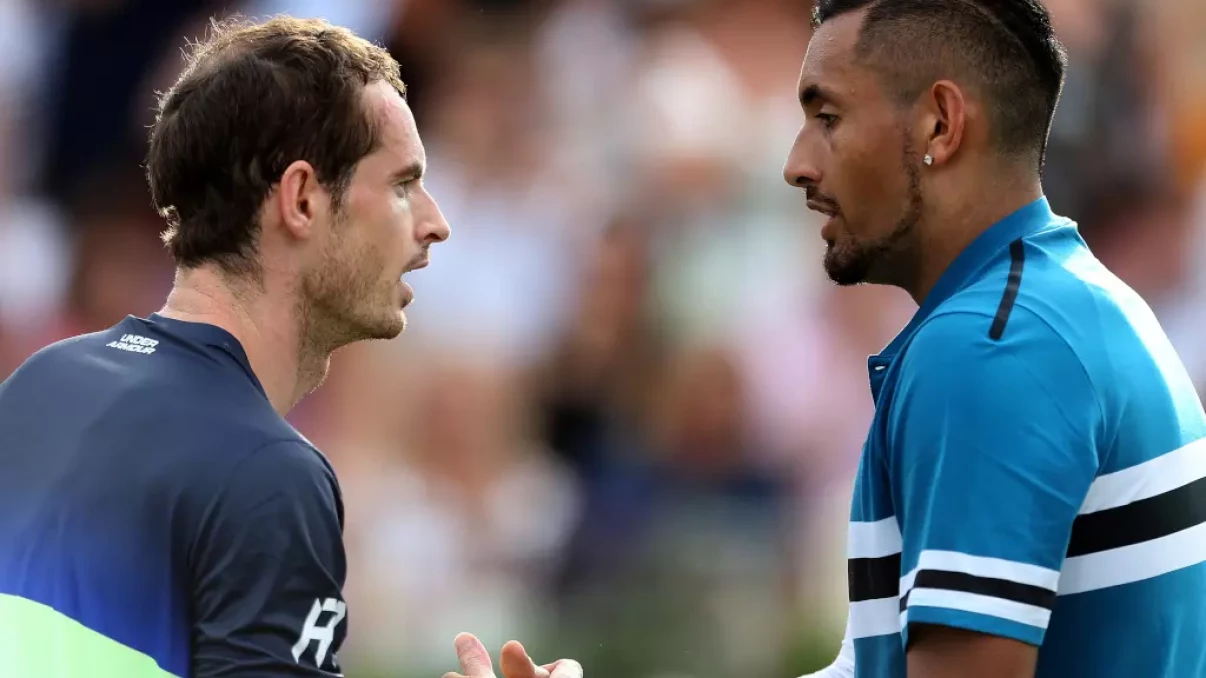Nick Kyrgios reveals gratitude to Andy Murray for trying to help him during dark times
 By
SABC Sport
By
SABC Sport
2nd December 2023

Nick Kyrgios has revealed that Andy Murray reached out to him and offered help when he grew concerned by the Australian's behaviour during a practice session.
In a recent interview with Piers Morgan, Kyrgios said he was "very thankful" to Murray, who attempted to intervene when he spotted signs of self-harm during what Kyrgios now admits was a very dark period in his life.
"Andy was always a big supporter of me. As soon as I came on the tour, he kind of saw a work in progress and took me under his wing," Kyrgios told Morgan.
"Then he realised later in my career that I don't think I was coachable or I was on my own path, but he was always someone that was looking out for me.
"He saw it (the self-harm) and he said, "What's that on your arm?' It was pretty bad at that stage. Andy obviously was trying to give me advice on it. But I was just so stuck in my ways at that time that I didn't listen. Obviously I'm very thankful. I thank him a lot.
"I think it was all a year-and-a-half to two years of just complete harm. It was pretty dark to be honest. I hated myself. I hated waking up and being Nick Kyrgios."
Kyrgios has previously spoken about the mental health struggles he has endured, including during Netflix tennis documentary Break Point, which aired earlier this year.
In the documentary, the 28-year-old revealed he had been admitted to a London psychiatric hospital after exiting Wimbledon in 2019.
"I was genuinely contemplating if I wanted to commit suicide. I lost at Wimbledon. I woke up and my dad was sitting on the bed, full-blown crying. That was the big wake-up call for me," he said.
"I was drinking, abusing drugs, lost my relationship with my family, pushed all my close friends away. You could tell I was hurting. My whole arm was covered in scars. That's why I actually got my arm sleeve. To cover it all."
A Times report revealed that Murray alerted Kyrgios' manager John Morris to the signs he had noticed.
Kyrgios also believes that opening up about his struggles has helped a lot of people going through similar things.
"I feel like I've helped so many people after I opened up about it and put it on social media. I've almost been a beacon for people who are struggling," the former Wimbledon runner-up added.
"When they feel like they're overwhelmed and they're going towards drinking, drugs and stuff, they open up and they feel like I'm relatable. That's been the most powerful thing in my career; people coming to me with genuine issues.
"They send me photos in my Instagram, direct messages, self-harming and genuinely wanting to commit suicide. I have conversations with these people. Sometimes I've had phone calls with these people. That's making a real difference and I'm just really proud."




